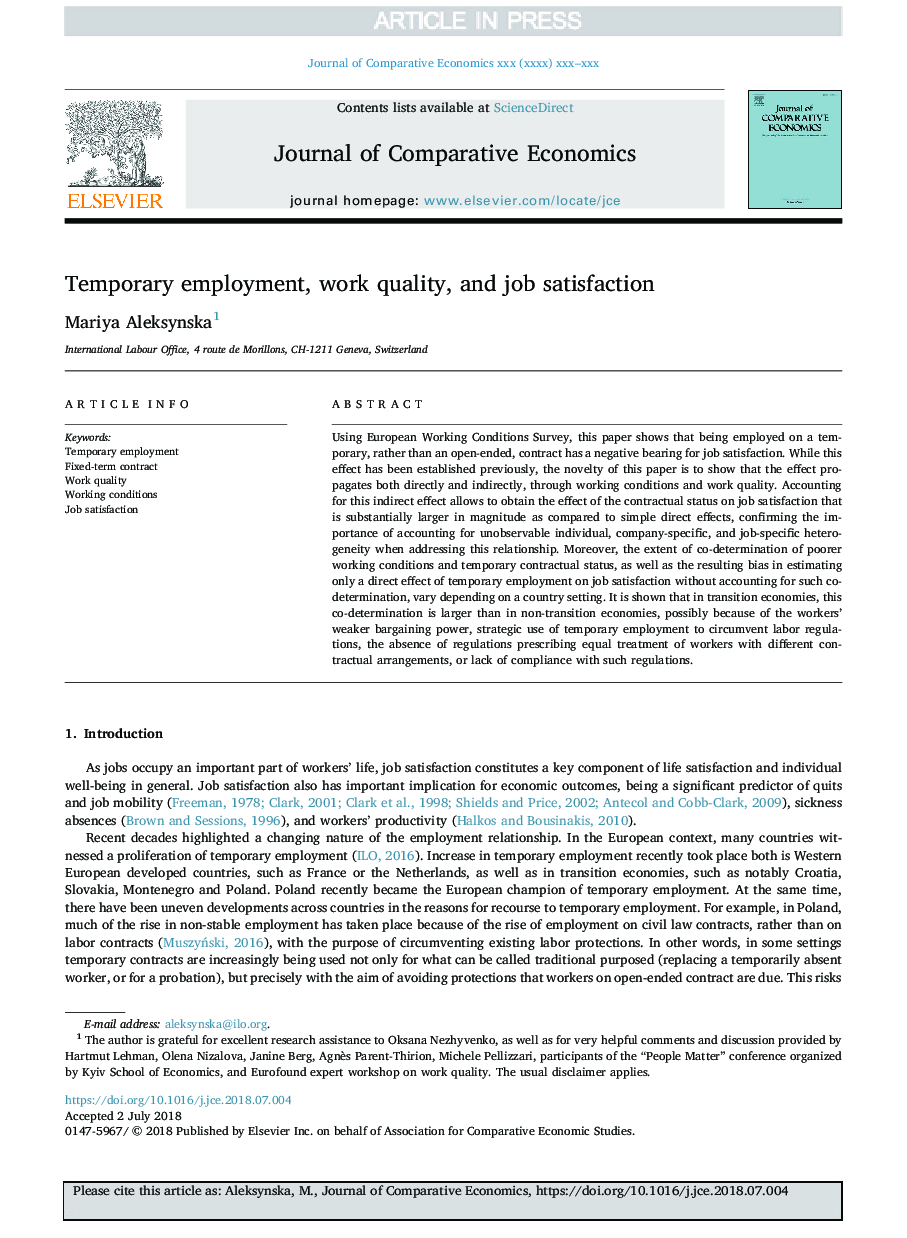| Article ID | Journal | Published Year | Pages | File Type |
|---|---|---|---|---|
| 10153663 | Journal of Comparative Economics | 2018 | 14 Pages |
Abstract
Using European Working Conditions Survey, this paper shows that being employed on a temporary, rather than an open-ended, contract has a negative bearing for job satisfaction. While this effect has been established previously, the novelty of this paper is to show that the effect propagates both directly and indirectly, through working conditions and work quality. Accounting for this indirect effect allows to obtain the effect of the contractual status on job satisfaction that is substantially larger in magnitude as compared to simple direct effects, confirming the importance of accounting for unobservable individual, company-specific, and job-specific heterogeneity when addressing this relationship. Moreover, the extent of co-determination of poorer working conditions and temporary contractual status, as well as the resulting bias in estimating only a direct effect of temporary employment on job satisfaction without accounting for such co-determination, vary depending on a country setting. It is shown that in transition economies, this co-determination is larger than in non-transition economies, possibly because of the workers' weaker bargaining power, strategic use of temporary employment to circumvent labor regulations, the absence of regulations prescribing equal treatment of workers with different contractual arrangements, or lack of compliance with such regulations.
Related Topics
Social Sciences and Humanities
Economics, Econometrics and Finance
Economics and Econometrics
Authors
Mariya Aleksynska,
